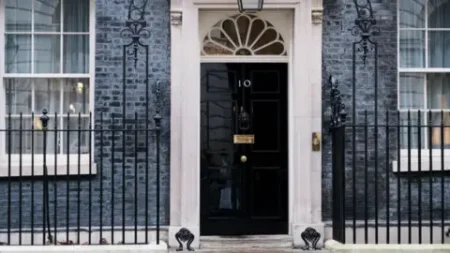In recent headlines, a significant discourse has emerged around the contentious issue of healthcare worker remuneration and support for individuals facing racial abuse in sports. The topics have garnered both public and media attention, particularly in the context of the ongoing struggles faced by doctors in the UK as they demand fairer pay and the solidarity shown towards athletes combating online racism.
The Daily Express has drawn attention with its striking headline: “Doctors ‘hold patients to ransom’ with pay demand.” This report underscores a looming strike by resident doctors who are scheduled to walk out for five consecutive days, starting from July 25 through July 30. The strike arises from a protracted dispute regarding their pay, exacerbated by the escalating cost of living. In conjunction with this, the Daily Mail’s reporting states that the British Medical Association (BMA) has assembled a war chest amounting to £1 million specifically intended to fund the impending strike campaign aimed at facilitating a 29% pay rise for these medical professionals. Such demands reflect the broader context of workers across various sectors grappling with wage disparities in the face of inflation.
Moreover, the topic of rising discontent in the healthcare sector is also mirrored in the Guardian’s exploration of systemic issues within maternity care in England. Their coverage indicates a staggering potential liability of £27 billion for the National Health Service (NHS), stemming from negligence claims linked to obstetric errors since 2019. As the frequency of these incidents increases, the report notes that the number of families resorting to legal action has doubled since 2007. This surge emphasizes the urgent need for reforms and heightened accountability within the NHS.
On a different yet equally pressing note, the support for England football player Jess Carter has taken center stage in sports news. The Daily Mirror prominently features the headline “We stand with Jess,” highlighting the solidarity expressed towards Carter after she endured racial abuse online following a recent Euros quarter-final match. The Football Association (FA) has condemned these derogatory remarks as “disgusting” and has pledged to cooperate with law enforcement to identify the perpetrators. Such incidents not only undermine the spirit of sportsmanship but also ignite broader discussions about racism and its implications in the athletic arena.
In reflection of these sentiments, The Times reports on the ongoing narrative surrounding Jess Carter, juxtaposed with political concerns. Discussions are underway with key political figures, such as Chancellor Rachel Reeves, who is expected to counter calls from the left to introduce a wealth tax, potentially stirring controversy among party members and the general public. The various narratives presented across different publications demonstrate the intersection of health, race, and politics.
Furthermore, the Financial Times has taken a different angle, spotlighting Downing Street’s precarious position regarding encrypted data and privacy laws amid disagreements with major tech companies like Apple. This has prompted calls for a reassessment of investigative powers legislation in light of international negotiations.
As the landscape of news continues to evolve, each story feeds into a greater narrative about society’s struggles with systemic issues, whether they be in healthcare, the fight against racism, or the political ramifications of economic decisions. The common thread remains the pursuit of justice—whether that be for fair compensation for essential workers or advocacy against discrimination in sports. Each article serves as a reminder that the complexities of these issues are deeply interconnected, influencing public sentiment and policy-making in significant ways.
In conclusion, the unfolding events portray a society grappling with pressing challenges, from healthcare reform to combatting racism, urging readers to reflect on their wider implications and the collective action required to address them. It is crucial for communities, policymakers, and stakeholders to engage in meaningful dialogue to seek resolution and progress in these vital areas.











